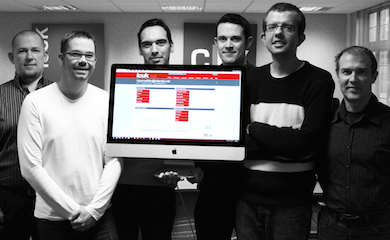 Government plans to crack down on nuisance callers do not go far enough according to Simwood's MD Simon Woodhead (pictured).
Government plans to crack down on nuisance callers do not go far enough according to Simwood's MD Simon Woodhead (pictured).
"We made suggestions to the Department of Culture Media and Sport about making the process of Nuisance Call Handling fit for purpose," he said. "While we welcome the changes they fail to acknowledge the points we made and exacerbate the factors behind them."
The Government could enforce mandatory Caller ID (CLI) for marketing callers, observed Woodhead. "While welcome, it is common practice for marketing callers to already present CLI because it improves answer rates and bypasses basic Anonymous Caller Reject services," he pointed out.
"The problem is that the CLI they use isn't necessarily their own. Enforcing them to use one risks more calls bypassing Anonymous Caller Reject services, and more complaints into a broken complaints process.
"Furthermore, whether CLI is withheld from the callee or not, a call compliant with existing OFCOM requirements will have a valid CLI visible to operators at a lower level anyway.
"They simply need to look more deeply into where the problem call actually entered their network, rather than which operator's number was used.
"For example, BT call handlers just rely on the range holder to
attribute blame, irrespective of where the call actually came from or
whether the range holder had any connection with it. "
Woodhead has called on OFCOM and the DCMS to reform the Nuisance Call process within the incumbent and other major operators to avoid this scenario.
"We have a zero tolerance for Nuisance Calling," he stated. "In addition to Intelligent Caller Reject to help our customers' end users, we also expect the use of valid and well formed CLI."

 The ICUK team have taken a bow after the successful roll out of Version 12 of the company's control panel for reseller partners.
The ICUK team have taken a bow after the successful roll out of Version 12 of the company's control panel for reseller partners. Falling prices and consumers' insatiable desire for multimedia content mean that the phablet phenomenon will continue into 2015 and beyond.
Falling prices and consumers' insatiable desire for multimedia content mean that the phablet phenomenon will continue into 2015 and beyond.